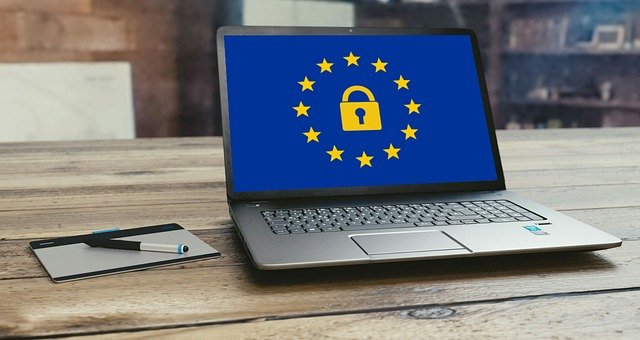If you have access to information and data, whether it’s stored online or offline, then you should comply with the General Data Protection Regulation or GDPR. Understanding and adhering to these regulations is a critical step for ensuring your business can continue to provide access to the information that it needs to offer its customers while also safeguarding their personal information.
Unfortunately, there are business organizations that are still unaware of this critical legislation and what they need to comply. So if you need guidance on this matter, then we suggest you continue reading as we will discuss the details about GDPR compliance that you need to keep in mind to enhance user experience, prevent data breaches, and establish greater trust with your customers since you are able to protect their personal data.
It May Be A Mandate By The European Union (EU), But It Applies To All Countries
The GDPR was approved by the European Parliament in 2016 as an effort to replace the outdated 1995 data protection initiative. However, the mandate was only enforced 2 years later on May 25, 2018.
A common misconception by most companies in other countries, especially in the United States, is that organizations that don’t engage in business with European companies or EU citizens are exempted from this mandate. But the fact of the matter is, the recent GDPR changes apply to all companies regardless of which country they are located.
If an organization, regardless if it’s EU or otherwise, is offering goods or services and is collected personal information of their customers, then the GDPR mandate applies to them.
The Mandate Requires Companies To Respect The User’s 8 Basic Rights On Data Privacy And Personal Data

The GDPR establishes 8 rights that are applicable to all internet users. And any business organization is required to honor these rights at all times or face applicable sanctions as indicated in the mandate:
- Users must be able to access their personal data and companies must provide a digital copy of the user’s data if requested (free of charge). Also, users can ask the company how their personal data is used, stored, and transferred to other companies.
- Users must give consent and be informed about how their personal data is gathered and processed.
- Users can transfer their personal data to another service provider any time they want.
- The data of any user who is no longer a customer of a company must be deleted.
- Users can object to the processing of their personal data any time they want.
- Users can restrict processing of their personal data and leave it as is.
- Users must be notified in any cases where their personal data is possibly compromised within 72 hours where the breach was first discovered.
- Users can update, complete, or edit their personal data any time they want.
The GDPR Requirements Are Applicable To All Types Of Personal Data
The GDPR mandate covers these kinds of personal data:
- Basic information (name, address, mobile number, email address, etc.)
- Web data (IP address, RFID tags, cookie data)
- Health data
- Genetic data
- Biometric data
- Ethnic data
- Sexual orientation
- Political inclination
- Any other identifiable information (social media posts, uploaded images, medical records, etc.)
Non-Compliance Of The GDPR Mandate Will Result In Hefty Penalties
Companies who are dealing with customer’s personal data must prove to the EU officials that they are making efforts to make their website GDPR compliant. If they are not compliant, they are accountable for heavy penalties of as much as $24.4 million or 4% of global turnover, whichever is greater.
Companies Should Provide An Opt-In Option For Collecting Personal Data
Being GDPR compliant also requires companies to follow the affirmative consent principle. To be specific, they should obtain explicit permission from the user before collecting, storing, and processing their personal data rather than assuming user consent.
This new approach of collecting data information applies to everything, from customer registration to adding up a user’s email address to a company’s newsletter list.
Being GDPR Compliant Doesn’t Let Companies Hide Behind Legalities Or Dodge Requirements
The General Data Protection Regulation prohibits business organizations from hiding behind obscured terms and conditions or any policies that are hard to understand. Instead, companies are obliged to clearly define their own data privacy policies. Aside from that, these policies must be easily accessible and can’t absolve companies from responding to online issues like data breaches which can compromise the user’s personal information.
Moreover, companies are required to monitor their vendors and their privacy policies to ensure they are all GDPR compliant. Otherwise, these companies will also be held liable if their vendor is non-compliant with the GDPR mandate.
The Mandate Sets A Time Limit For Breach Notifications
In the event of a data breach, business organizations are required to report the issue within 72 hours of the discovery of the breach. And the data processor(s) must inform their users immediately. This may be the thing that sets apart for most privacy policy practices, especially in the United States since 60% of the companies don’t usually have processes for these kinds of problems nor even share details about the breach that they experienced.
With these changes, companies are mandated to take personal data breaches seriously or face sanctions and pay penalty fees.
Companies And Business Organizations May Need To Employ A Protection Officer To Properly Manage GDPR Requirements
Finally, being GDPR compliant may be overwhelming to companies and that’s perfectly understandable. So to avoid getting lost with all the requirements, business organizations dealing with customers are recommended to hire an officer who can manage the GDPR policies and ensure that the company is compliant at all times.
A company needs a personal data protection officer if:
- If the company maintains public infrastructure and regulates public property.
- If the organization is constantly engaged in large-scale monitoring of customer data.
- If the company is always processing large amounts of user data.
Overall, a personal data protection officer is needed to take care of all the things that are required to make a company GDPR compliant.
If you’re looking for a GDPR lawyer in LA, you can contact Metaverse Law for more information.
